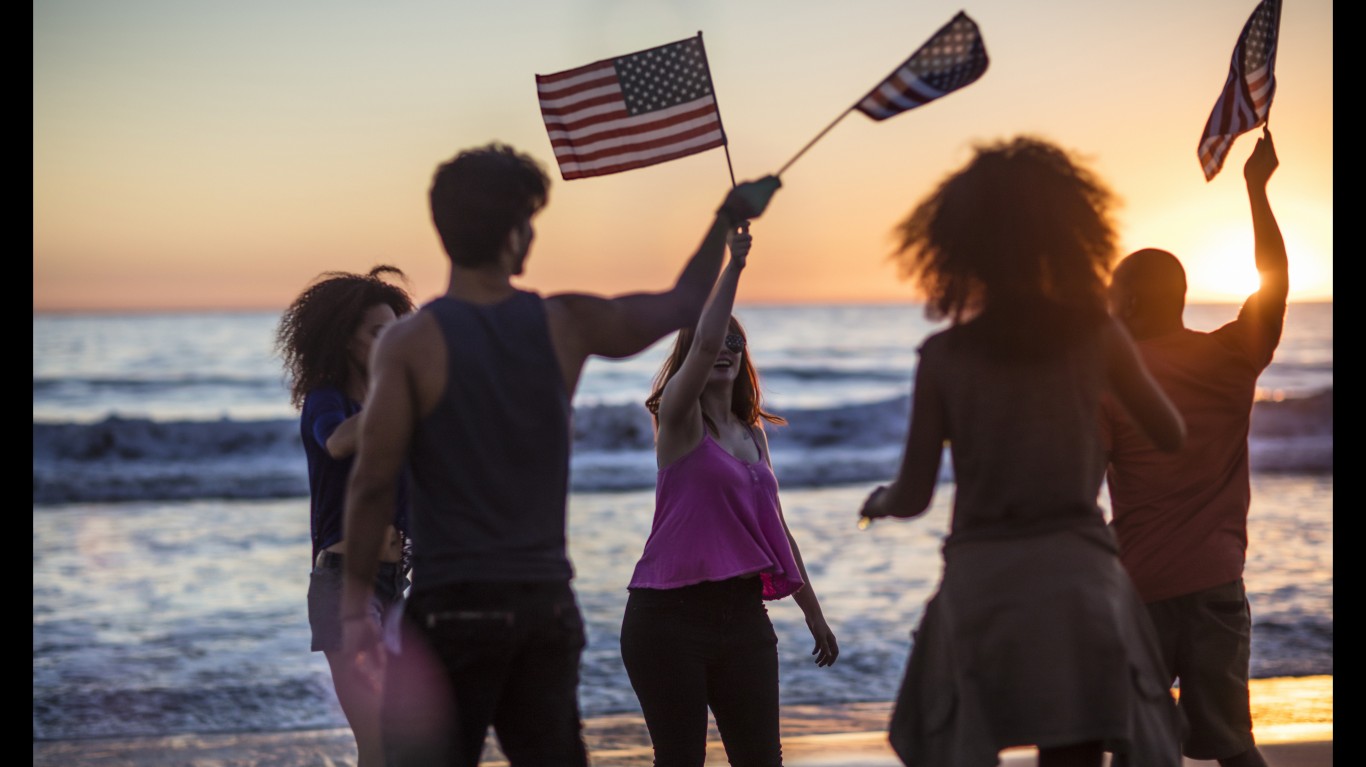
In 1968, Congress passed the Uniform Monday Holiday Bill, which moved several federal holidays to Mondays. The goal was to give workers several three-day weekends throughout the year so families can spend more time together.
The U.S. government recognizes a total of 12 federal holidays – 11 observed annually and Inauguration Day observed every four years.
A federal holiday is a calendar date that is recognized and designated by the federal government as a holiday. This is a day when nonessential federal government offices are closed. State governments and private institutions such as banks are not required by law to close on federal holidays, though most do as a courtesy.
The first four federal holidays were established in 1870, when Congress passed a law allowing federal workers in the District of Columbia to take paid time off on New Year’s Day, Independence Day, Thanksgiving Day, and Christmas Day.
Federal, state, and other types of holiday — regardless of its initial purpose — are popular times to travel. After a year of travel restrictions, spending time outside is much needed for many people. This is the best place to enjoy the water in each state.
Click here for the origin of July 4th and every other federal holiday.

New Year’s Day
> Celebrated on: January 1
New Year’s Day has been a federal holiday in the U.S. since 1885. January 1 is the first day of the Gregorian calendar, which was first introduced in 1582 by Pope Gregory XIII, replacing the Julian calendar. The Gregorian calendar fixed a small inaccuracy that caused a regression of one day a century.
Jan. 1, which was also the first day of the Julian calendar, was chosen to be the first of the new year in honor of Janus, the Roman god of new beginnings and the month’s namesake.
[in-text-ad]
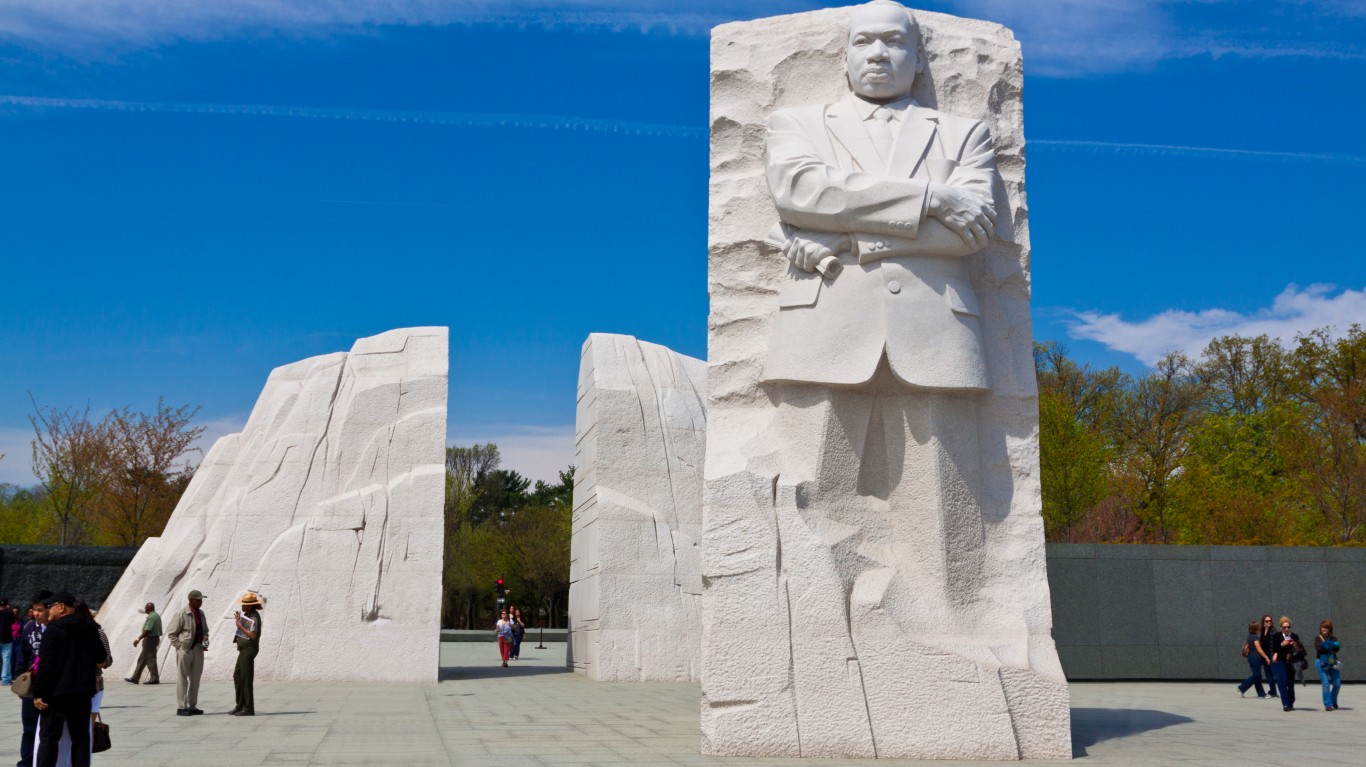
Martin Luther King, Jr. Day
> Celebrated on: 3rd Monday of January each year
Martin Luther King Jr. Day honors civil rights leader Martin Luther King Jr. and his achievements. The official name of the federal holiday is the Birthday of Martin Luther King, Jr. King was born on Jan. 15, 1929 and was assassinated in 1968.
The first federal Martin Luther King holiday was celebrated in 1986, three years after President Ronald Reagan signed the bill making the day a federal holiday and 15 years after the idea to honor King with a holiday was brought up. Some states did not observe the holiday for many years — the last three started observing it in 2000 — and instead celebrated Confederate leader Robert E. Lee, who was born on Jan. 19.
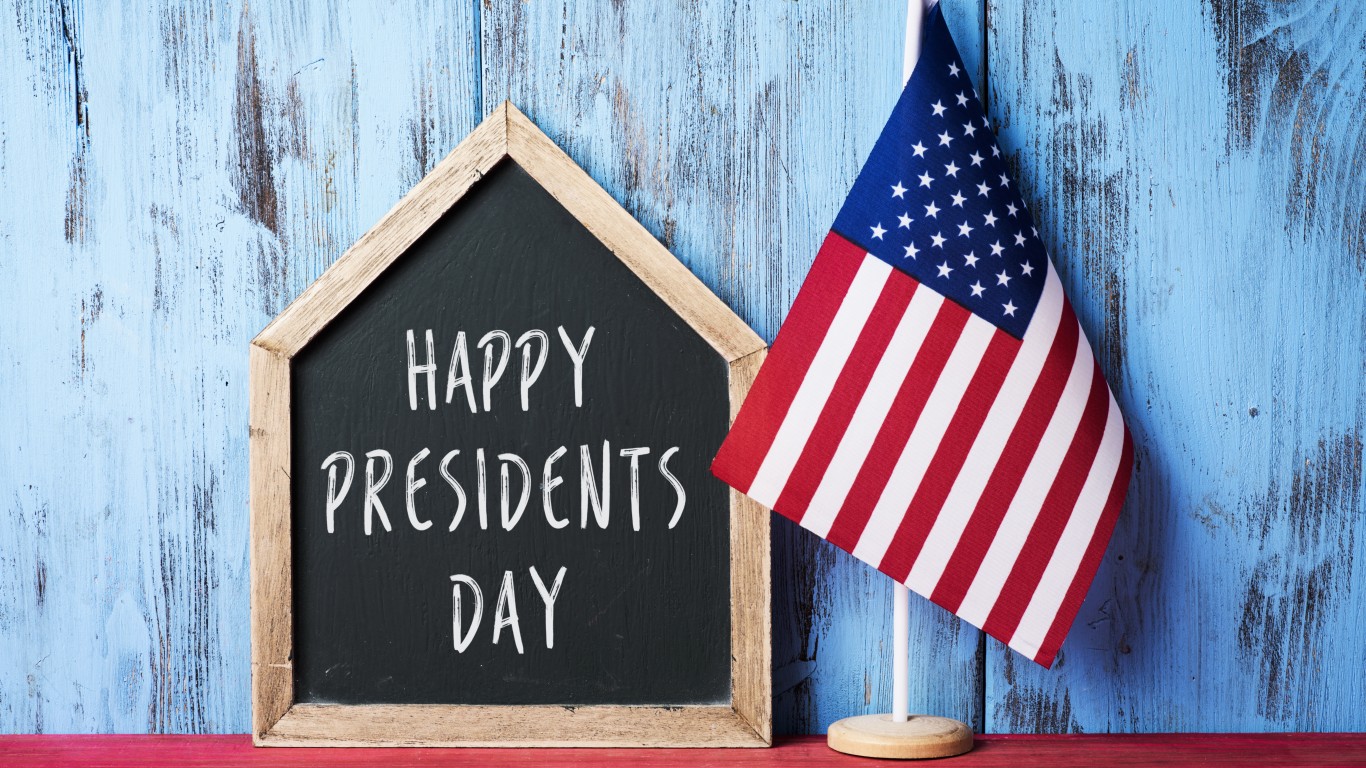
President’s Day
> Celebrated on: 3rd Monday in February
President’s Day — officially Washington’s Birthday — is a federal holiday in honor of the first president of the United States and commander of the Continental Army during the American Revolution, George Washington. Washington who was born on Feb. 22, 1732.
The federal holiday was established in 1885 but became popular as President’s Day after 1971. That year, a bill — the Uniform Monday Holiday Act, which aimed to create more three-day weekends — went into effect.

Memorial Day
> Celebrated on: Last Monday of May
Memorial Day is a day on which Americans honor those who died serving in the military. The day, however, was originally known as Decoration Day after Americans in the late 1860s started holding tributes to honor those who died during the Civil War. How that tradition started is not known, but General John A. Logan, leader of an organization of Northern Civil War veterans, designated May 30, 1868, as the first official Decoration Day.
Memorial Day, also known as the unofficial start of the summer, officially became a federal holiday in 1971 with the passing of the Uniform Monday Holiday Act. The law moved Memorial Day from May 30 to the last Monday in May.
[in-text-ad-2]
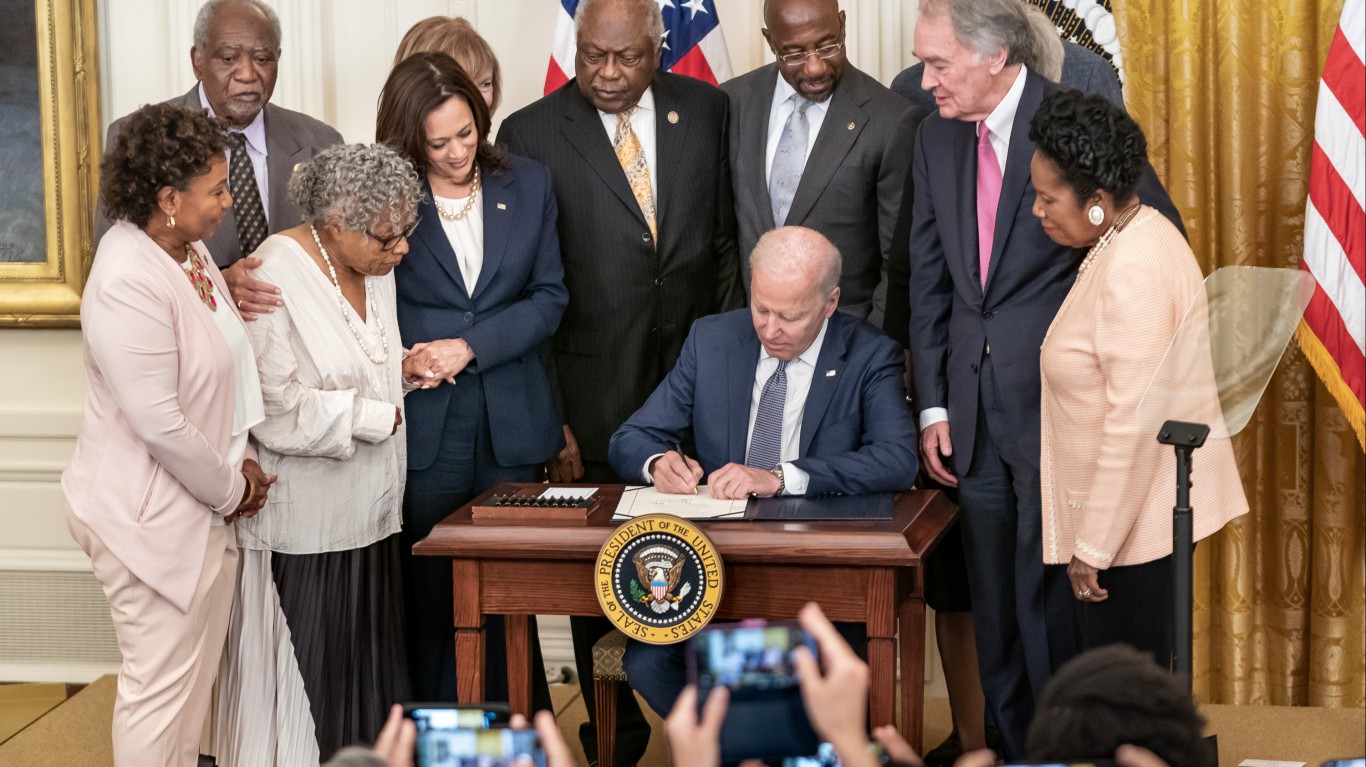
Juneteenth National Independence Day
> Celebrated on: June 19
Juneteenth is the newest federal holiday in the U.S. President Joe Biden signed the bill establishing the new federal holiday on June 17, 2021. The bill commemorates the end of slavery in the country.
Though the Emancipation Proclamation was issued on Sept. 22, 1862, it wasn’t until June 19, 1865, that federal troops took control of Texas — where slavery had continued for over two years despite the federal law — to enforce the proclamation. The first Juneteenth celebration took place in Texas on June 19, 1866, and was called Jubilee Day. Texas was also the first state to make Juneteenth an official holiday — in 1979.
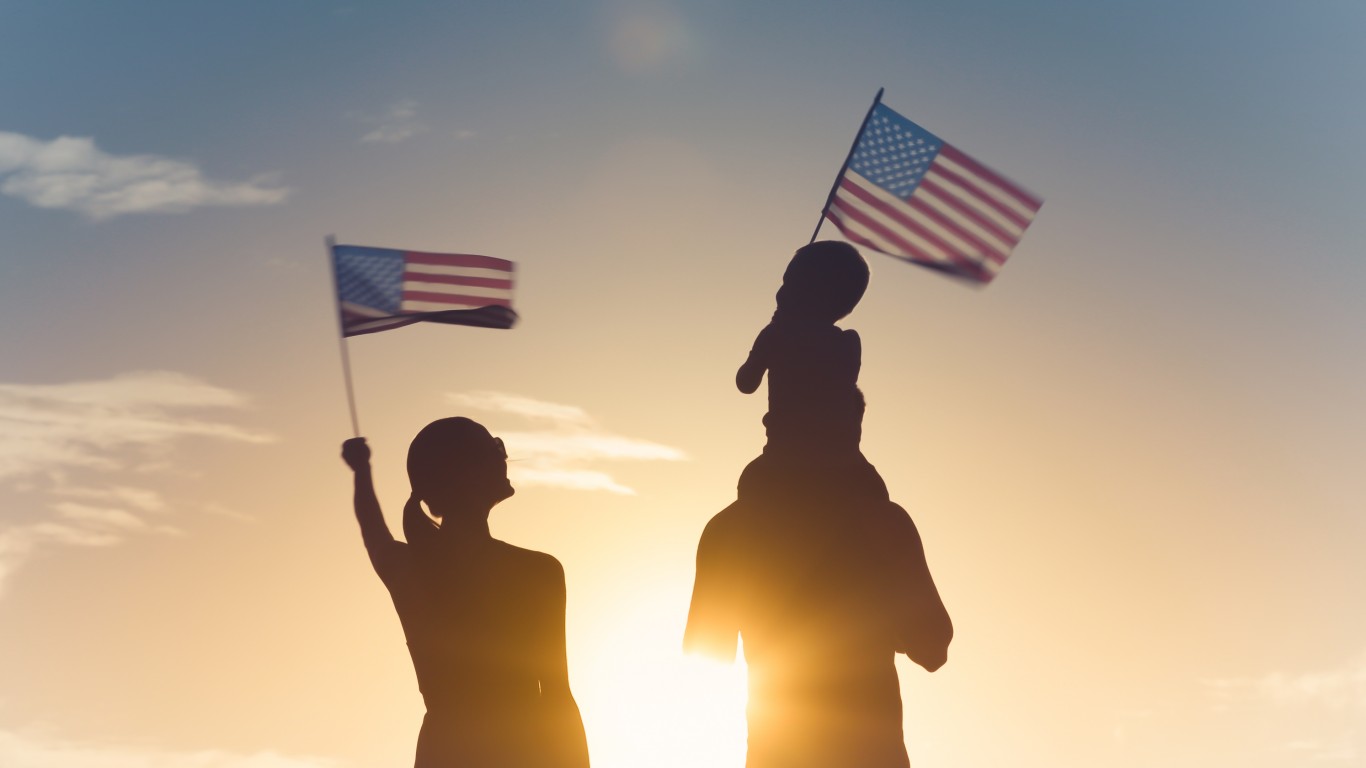
Independence Day
> Celebrated on: July 4
On July 4, 1776, the colonies officially announced their separation from Great Britain. July Fourth has been a federal holiday since 1941 even though Americans have been celebrating Independence Day since the birth of the country.
The initial motion calling for the original 13 colonies’ independence was written by Thomas Jefferson of Virginia, John Adams of Massachusetts, Roger Sherman of Connecticut, Benjamin Franklin of Pennsylvania, and Robert R. Livingston of New York. The Continental Congress voted in favor of the resolution on July 2. Two days later, delegates from the 13 colonies adopted the Declaration of Independence.
[in-text-ad]

Labor Day
> Celebrated on: 1st Monday in September
Labor Day was established thanks to lobbying by the labor movement and is dedicated to the social and economic achievements of American workers. The day is a national tribute to the contributions workers have made to the prosperity of the U.S.
Labor Day, the unofficial end of summer, officially became a federal holiday in 1894. The idea of a holiday honoring working people came a few decades earlier, when it was not uncommon for adults and even children as young as 5 years old to work 12-hour days in unsafe conditions. The first Labor Day holiday was celebrated on Sept. 5, 1882, in New York City after 10,000 workers marched from City Hall to Union Square.

Columbus Day
> Celebrated on: 2nd Monday in October
Columbus Day commemorates the landing of Christopher Columbus on Oct. 12, 1492 in the New World. Columbus was a native of Genoa, today part of Italy. The day officially became a federal holiday largely thanks to the efforts of Italian-Americans in 1937 but had been celebrated as early as the 18th century.
There is much controversy around the holiday, largely because of the use of violence and forced labor, as well as the forced conversion of native peoples to Christianity. Some states celebrate the day as Indigenous People’s Day, a holiday that celebrates the history and contributions of Native Americans.
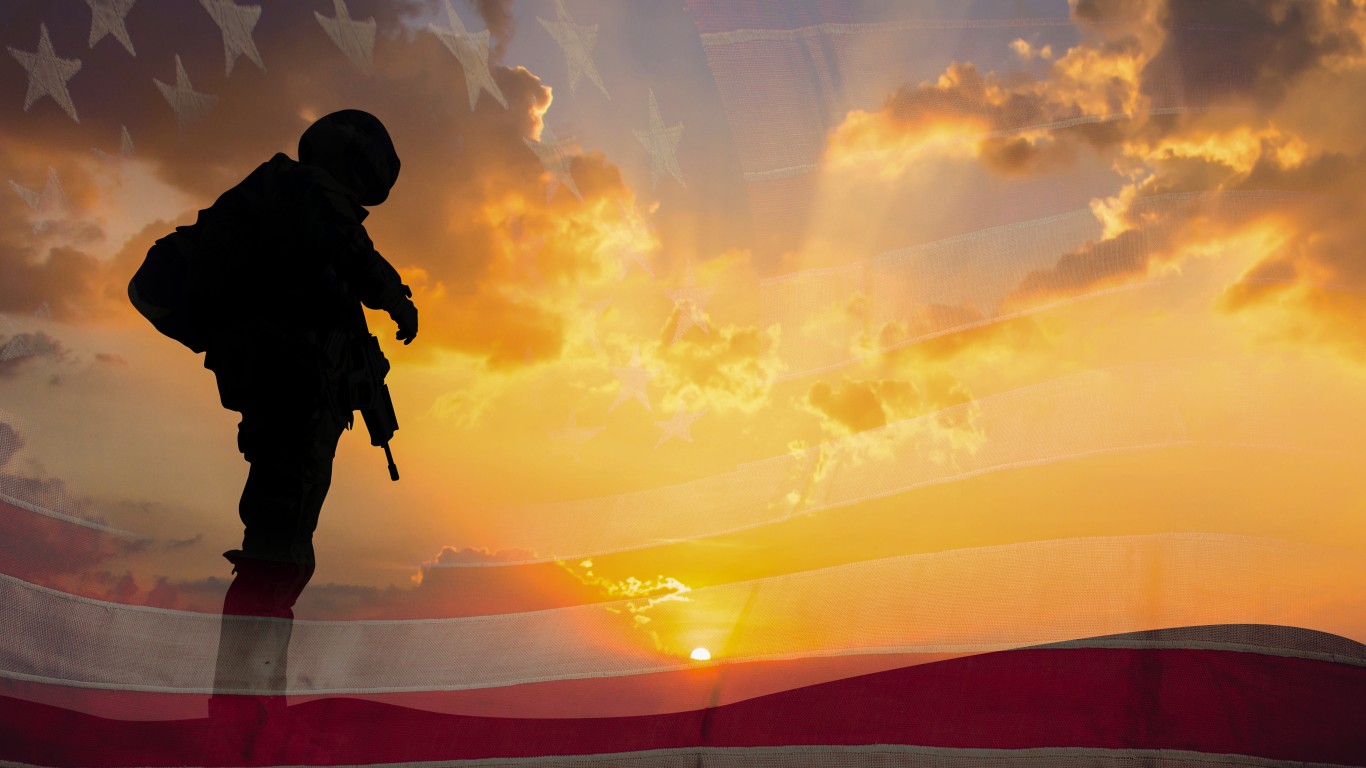
Veterans Day
> Celebrated on: Nov 11
Veterans Day, in honor of all veterans (unlike Memorial Day, which commemorates those who have died) was first celebrated as Armistice Day. It was first marked on Nov. 11, 1919, the one-year anniversary of the end of World War I, and it became a national holiday in 1938.
President Dwight D. Eisenhower changed the name of the holiday from Armistice Day to Veterans Day in 1954. The Uniform Holidays Bill moved the federal holiday from Nov. 11 to the fourth Monday in October, but seven years later President Gerald Ford moved it back to Nov. 11.
[in-text-ad-2]

Thanksgiving Day
> Celebrated on: 4th Thursday in November
Thanksgiving Day in the U.S. is modeled on a 1621 harvest feast shared by the English colonists of Plymouth and the Wampanoag Native Americans. The Wampanoag people taught the Pilgrims how to grow food and catch fish. To celebrate the Pilgrims’ first successful corn harvest, they organized a feast and invited the Native Americans to celebrate. This is largely recognized as the first Thanksgiving celebrations in American history.
Following celebrations varied by colonies and states. The event became a national holiday to be marked on the fourth Thursday of every November in 1863.
Like Columbus Day, much controversy surrounds Thanksgiving Day. Some historians and Native Americans say the relationship between the Pilgrims and the Wampanoag people was in fact long and bloody, as opposed to friendly as taught in schools.

Christmas Day
> Celebrated on: December 25
Christmas is a religious holiday commemorating the birth of Jesus Christ, who Christians believe is the Son of God. (In reality, however, no one knows when Christ was actually born and Dec. 25 was the winter solstice on the Roman calendar.) The day has over time grown to be a worldwide cultural and commercial phenomenon celebrated by people around the world as a holiday during which families get together and exchange gifts.
Christmas Day has been a federal holiday since 1885. When Christmas Day falls on a weekend, people get the closest regular workday off.
[in-text-ad]
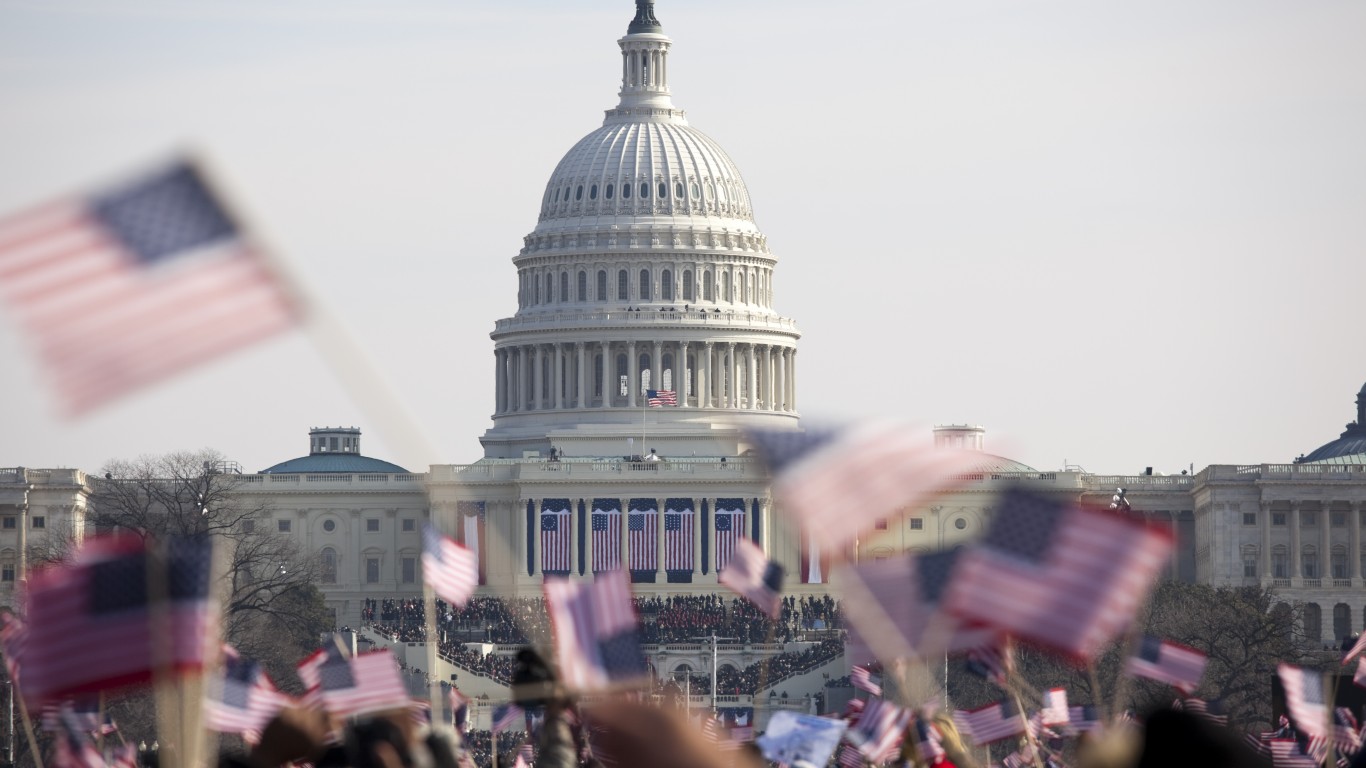
Inauguration Day
> Celebrated on: Every 4 years, on Jan 20 or Jan 21 if the 20th is a Sunday
Inauguration Day — the day a newly elected president is sworn in — is a federal holiday only for federal employees in the so called “Inauguration Day Area,” which includes the District of Columbia, Montgomery and Prince George Counties in Maryland, Arlington and Fairfax Counties in Virginia, and the cities of Alexandria, Falls Church, and Fairfax in Virginia.
Inauguration Day used to be in March until the 20th Amendment was passed in 1933, setting the date for transfer of power to be on Jan. 20, and the first meeting of the new Congress to take place on Jan. 3.
Get Ready To Retire (Sponsored)
Start by taking a quick retirement quiz from SmartAsset that will match you with up to 3 financial advisors that serve your area and beyond in 5 minutes, or less.
Each advisor has been vetted by SmartAsset and is held to a fiduciary standard to act in your best interests.
Here’s how it works:
1. Answer SmartAsset advisor match quiz
2. Review your pre-screened matches at your leisure. Check out the advisors’ profiles.
3. Speak with advisors at no cost to you. Have an introductory call on the phone or introduction in person and choose whom to work with in the future
Thank you for reading! Have some feedback for us?
Contact the 24/7 Wall St. editorial team.
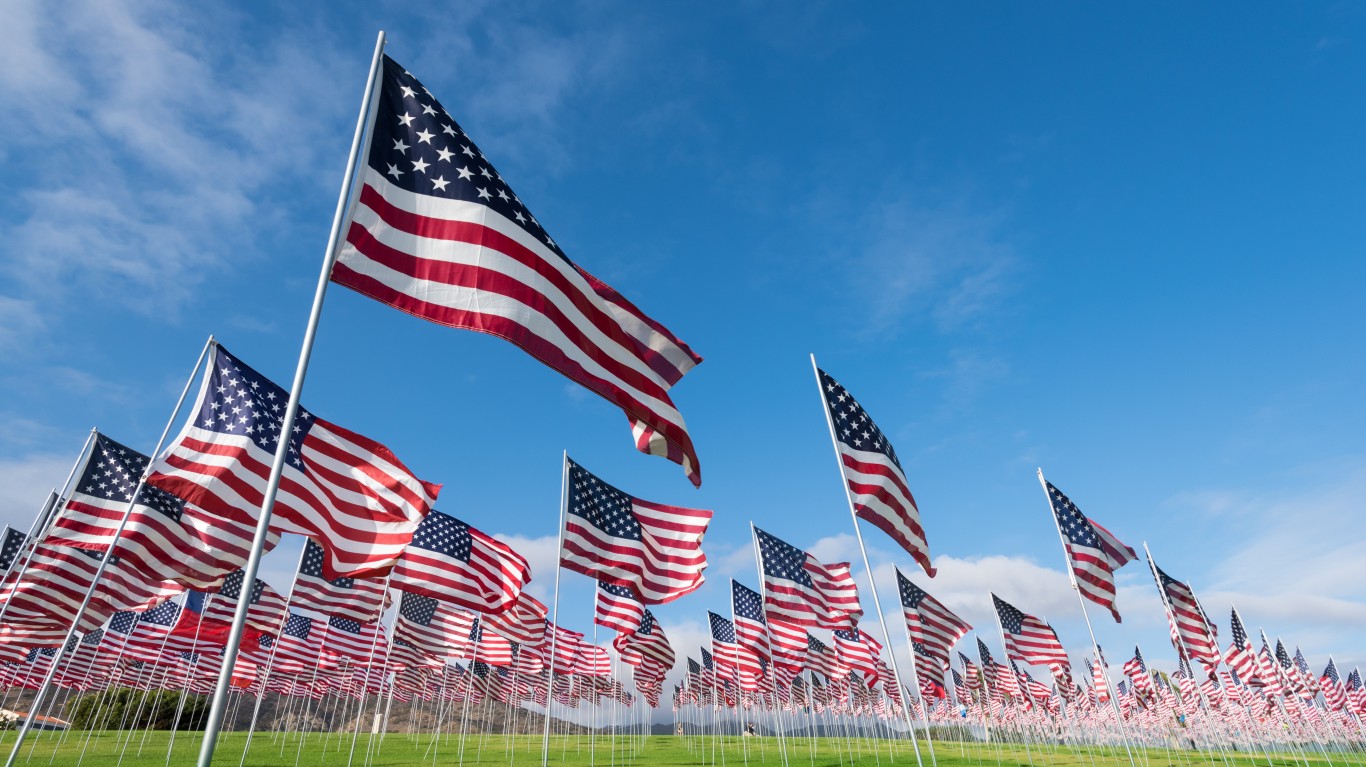 24/7 Wall St.
24/7 Wall St.